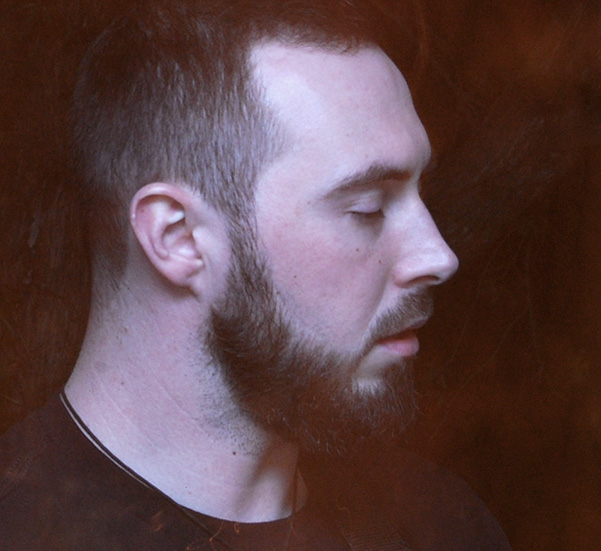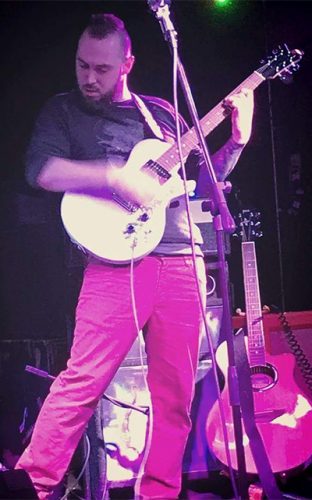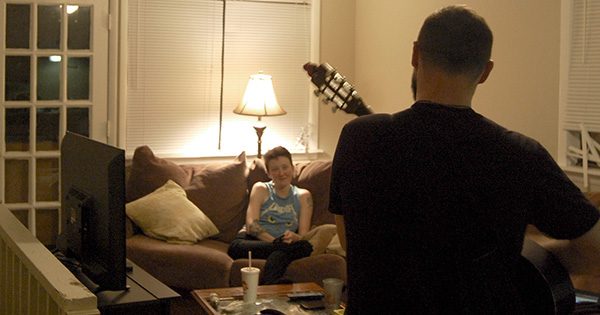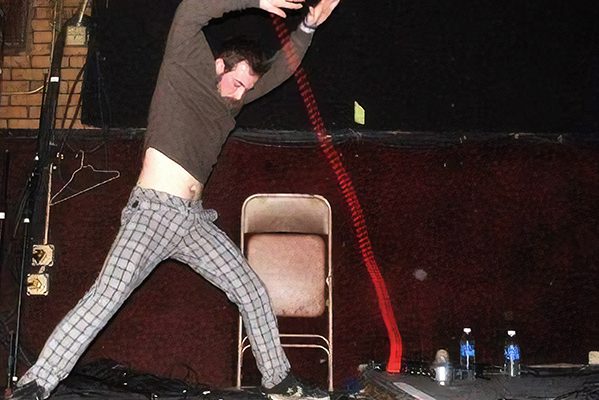
Columbian musician Thom Kehr of the band Hold Fire opens up about the struggles and successes of being a musician in a city with an up-and-coming music scene and what initial success means to him.
By Turner Harrison
May 12, 2018
Thom Kehr has always loved music. From a very young age he would listen to artists with themes of alienation, isolation and the darker aspects of life like Harry Chapin and Tool.
Now that Kehr is performing across Columbia with his band Hold Fire, he takes inspiration from the artists he admired in his youth that provided him with the emotional depth he craved.

“Growing up was a really chaotic time for me,” he says. “I had the suburbs with my mom and then Detroit dope houses with my dad. I guess that style resonated more with me more than lighthearted.”
Chapin’s music has captivated Kehr and influenced his songwriting.
“I always liked the story behind “30,000 pounds of Bananas” by Harry Chapin,” Kehr says. “It was about a trucker spilling his whole cargo in a crash and dying. Not what kids usually go for, but now I try to get that storytelling flow that just sounds natural in music.”
One of Kehr’s oldest friends, Megan Mayberry, says he’s been a constant source of support for her even with his touring schedule.
“He’s been a great friend through a lot,” Mayberry says. “Even though he’s always busy, he’s made time to sit and listen to me talk about anything and it’s meant a lot to me.”
Hold Fire is getting attention from promoters like Empire Booking’s Carlin Thompson, a club promoter who’s handled over a hundred bands in the area. Thompson says Hold Fire’s confessional and atmosphere tone is a “unique sound that separates them from the cookie-cutter bands.”
Columbia Voice sat down with Kehr to talk about his music, performing and dealing with the growing pains of early success. This transcript has been edited for length and clarity. (Listen to the entire interview.)
Tell me how you’re able to get that internal panic that a lot of artists face before they walk on stage out. …
Mostly I just panic, honestly. But I think that’s OK to do, I think that it’s important to do. Because, I mean, the whole point of going out to a show is to say like “Hey I’m volunteering to be a part of this thing where I’m going to feel stuff, where I know a bunch of other people are feeling stuff.” And like the people who are on stage aren’t exempt from that., and I think it’s important to not pretend that we’re exempt from that. If I go up on stage and I’m still red-faced, I’m like “Hey this is what you’re going to get for a couple of songs.” Because this is still a human connection between the two of us. …

Which emotions do you want to create in your listeners? …
I don’t know if I want to create any emotions in my listeners. I think I write from a place of I have this emotion does anybody else? Just please don’t let me be alone on this. … For a long time, I felt alone with emotions, and I think a lot of people do. …
I heard once somebody say that the difference between Bob Dylan and Bruce Springsteen, for instance, is that Bob Dylan writes universal songs by writing about himself and that Bruce Springsteen tries to write universal songs by writing about everybody else. And I think that the important distinction between the two is that – and that’s not to say there’s anything wrong with Bruce Springsteen – but it’s more a credit to Bob Dylan for realizing like I gotta keep diggin’ in me and I gotta to keep findin’ new levels of what’s going on inside because every day I’m a different person so every day I got a new song to write. So, I think it’s less about trying to make sure you feel something and more about this big confessional. …
Links
|
What kind of emotional release does your music bring you?…
A lot of what I write is a lot of confessing and being confessed to, of cheating on my own boundaries or respecting or not respecting myself spiritually and emotionally. Again, I don’t know if other people relate to that, but I know I have a really rough time recognizing which character I am in which person’s story, and so it’s easier to just put it all out there. So I think that’s probably as close to defining that. …
What makes you keep going in an industry that’s notoriously difficult to break through? …
Well, first and foremost I’ve always just, I knew, I knew. As a kid, I just knew. I was like OK, I’ve gotta figure out a way to do that cause it’s magic. So I didn’t really get much choice in the matter as far as what I wanted to do. But what drives me now is for a few years there I kind of went off the rails … I kind of hated music. … I had this really toxic relationship to it. … I started to honestly feel like it had turned its back on me like as a creator, and I stepped away from it for a few years, which was really strange. And I came back to it in a way that was more a coming clean and more of an act of forgiving music and I guess forgiving myself. …
Your inspirations. … If you could pick one, which one would you pick? …
It’s Maynard Keenan. Which is just such an odd choice I think after all of that. But he’s the singer of Tool, and he … finds a way of exposing himself that’s brilliant and vulnerable and really stimulating at all times, which I think is just so, so important. … And on that subject, ’cause he does psychedelic music but … not docile, and music doesn’t have to be docile. It can be this stimulating thing that I’m a part of. … To come and just feel it anyway; nobody does that better in my mind than Maynard. Nobody’s voice conveys that level of electricity and that level of vulnerability at the same time. I’ve just never heard it, and it’s still something that just blows me away.

